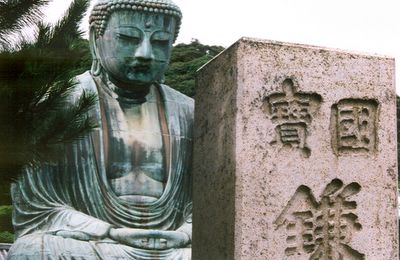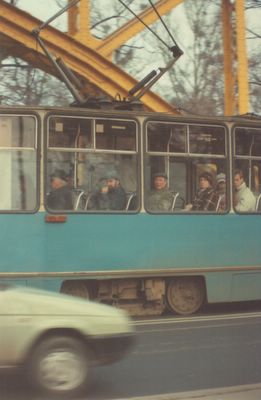Inconvenient impressions

昼食は楽しい
I have been accused by a friend of being "anti-American" and even disowned for the same. When I consider the charge, a chuckle murmurs within me at the thought that I could sweepingly reject or oppose all that is American or, worse still, hate something simply because it is American. Still, spending several weeks in the United States this summer gave me the occasion to note certain things that do displease me about my experiences there, without thinking directly of the nation's political character or policies (of which there would be too much to say). That is not to say that I accept the charge, which is truly preposterous and I think motivated by personal issues that have nothing to do with my reputed views on America; but I don't mind making known a short list I jotted down while flying home to Japan of things that I find disagreeable about life in the United States:
1. The preference for frigid air conditioning in public spaces.
2. The national obsession with ice cubes and sugared water in its various manifestations (from "sports drinks" to soda pop).
3. The 58 grams of sugar in my 6 oz. serving of "juice."
4. The tyranny of corn syrup, which is found in everything from "coffee creamer" to wheat bread.
5. The uniformly horrendous films consumed by the public.
6. The contrary, slow, tactless, distracted, self-entitled, chatty, and often clumsy service employees.
7. The omnipresent though unavowed credo, "Greed makes the world go 'round."
8. The near total indifference toward the global responsibility of recycling. (In the U.S., it pretty much all goes in the same damn bin!)
9. The near total failure of the nation to develop adequate and responsible public transportation.
10. And, most generally put, the default mode of American society: passively consuming the world's energy and resources at as high a rate as individually and collectively possible.
Several items on the list were clearly influenced by the scene in which I created it, but the important thing is that, on returning from the country, I felt a sense of relief that was as physical as much as psychological at not having to fight against extreme energy consumption and waste in my daily life.
Incidentally: Al Gore's film about the climate crisis, "An Inconvenient Truth," was one of four on the in-flight menu. As I walked to the bathroom, I looked around to see how many screens were tuned to Al Gore's film. Of the several hundred screens I saw lighted up, only one was tuned to "An Inconvenient Truth," and the person before it was sound asleep. I guess that Gore has a long way to go to rival the likes of Tom Cruise, whose face flashed all about the cabin. Whatever the case, I noted that, as important as this film's message is, Gore seems not to have noted the irony of his repeatedly being filmed taking international flights. It is as if Gore were totally unaware of the environmental damage his own relentless global trekking causes.



